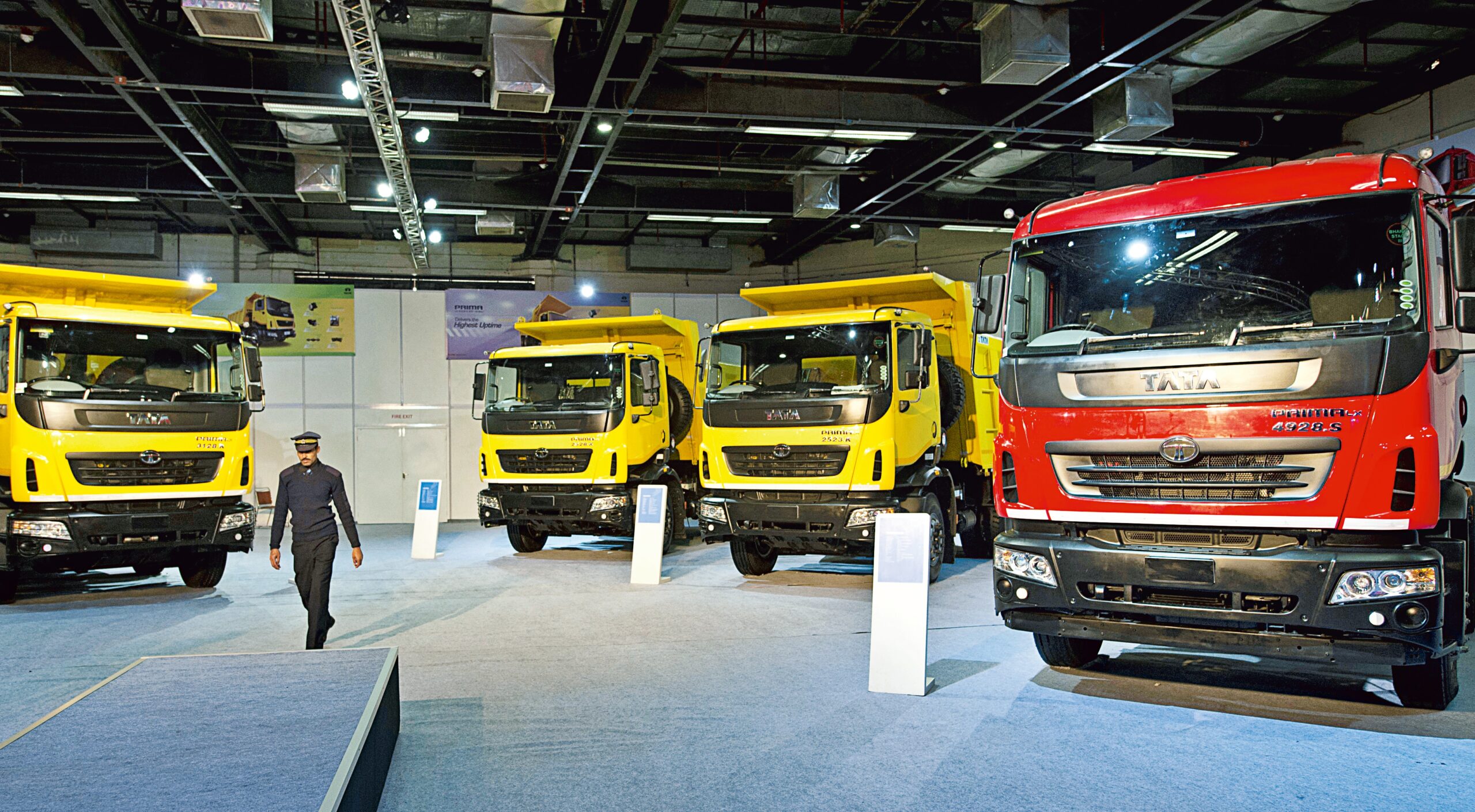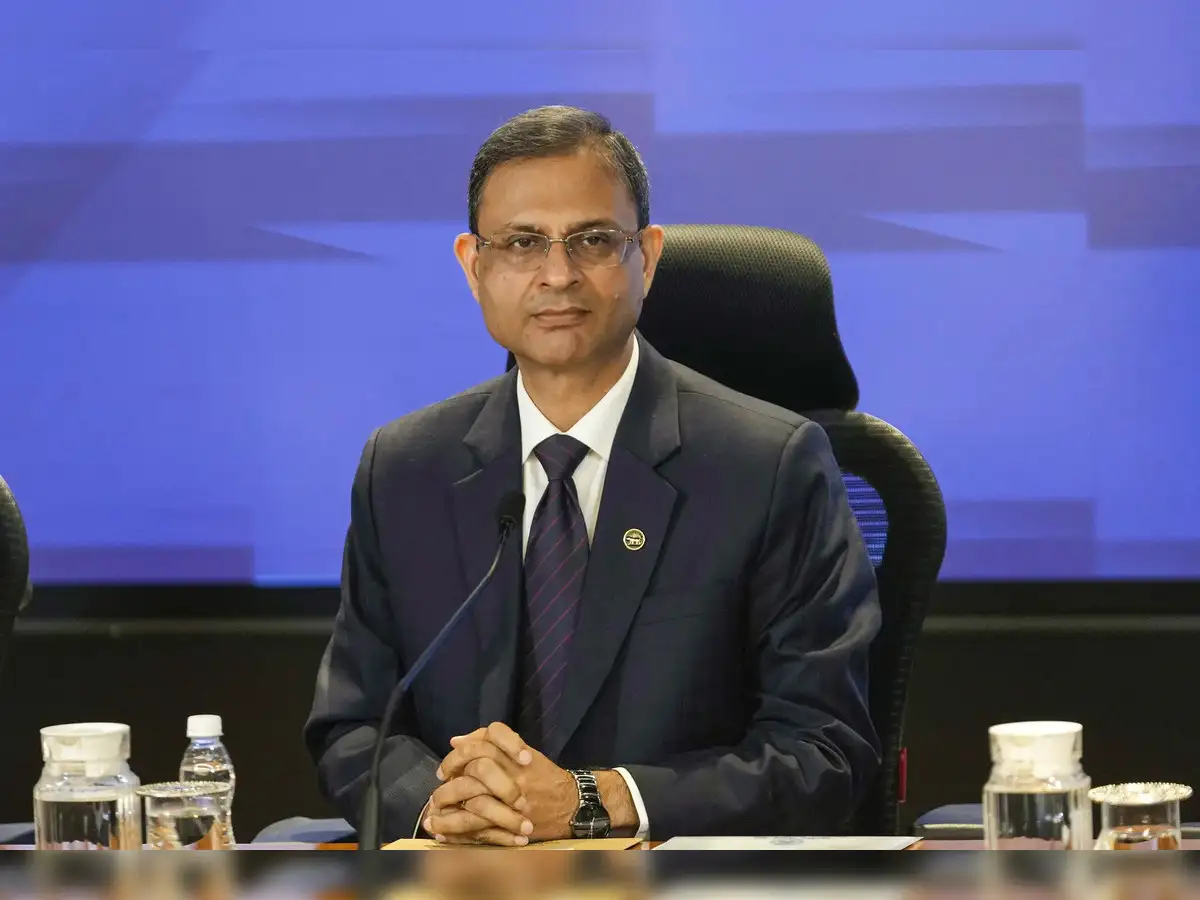Tata Motors has entered a new chapter in its corporate journey with the listing of its Commercial Vehicles division (Tata Motors Commercial Vehicles Limited – TMCV). The much-anticipated listing took place on 12 November 2025, marking a significant milestone after months of speculation surrounding the demerger of Tata Motors’ core businesses.
The shares of Tata Motors Commercial Vehicles made a strong debut on Dalal Street, opening with an impressive 28% premium over its implied pre-listing valuation. This strong opening reflects the market’s confidence in the newly independent entity and its potential to dominate India’s growing commercial vehicle market.
But as excitement settles, one key question lingers in every investor’s mind — should investors stay on board after such a strong debut, or is it time to book profits?
This detailed analysis explores every aspect of the event — from the demerger and listing details to business fundamentals, growth prospects, risk factors, and long-term investment strategies.
Background: The Tata Motors Demerger Explained
Why Tata Motors Chose to Demerge
Tata Motors, one of India’s most diversified automotive companies, decided in early 2024 to split its passenger vehicle (PV) and commercial vehicle (CV) businesses into two separate listed entities. The idea was to unlock shareholder value, enhance management focus, and create independent strategies for distinct market segments.
The demerger aimed to give each business — passenger cars and commercial vehicles — its own capital allocation flexibility, enabling better decision-making and faster growth in their respective markets.
Structure of the Demerger
Under the approved scheme, Tata Motors shareholders received one share of Tata Motors Commercial Vehicles Ltd (TMCV) for every share held in Tata Motors Ltd as of the record date – 14 October 2025.
Post-demerger, Tata Motors now operates under two major entities:
- Tata Motors Passenger Vehicles Ltd (TMPV) — comprising passenger cars and EVs.
- Tata Motors Commercial Vehicles Ltd (TMCV) — focusing exclusively on trucks, buses, and heavy-duty vehicles.
This structural change is designed to attract investors with different risk profiles — those seeking stable industrial growth (CV) and those betting on technology-driven EV expansion (PV).
The Listing Day: Strong Debut with a 28% Premium
Impressive Opening on the NSE and BSE
When Tata Motors Commercial Vehicles shares debuted on the stock exchanges, they opened at:
- ₹335 per share on NSE, compared to an implied price of ₹260.75.
- ₹330.25 per share on BSE, compared to an implied price of ₹261.90.
This translated to a premium of approximately 26–28%, making it one of the strongest debuts for an industrial spin-off in recent years.
Market Reaction and Early Trading Volatility
After the initial euphoria, the share witnessed mild volatility as traders booked profits. Prices briefly corrected to around ₹324 per share before stabilizing.
This pattern is common in demerger listings where existing shareholders sell the newly listed stock to rebalance portfolios. Nonetheless, the premium reflected strong institutional and retail investor confidence in TMCV’s standalone prospects.
Business Overview: What Tata Motors Commercial Vehicles Stands For
India’s Largest Commercial Vehicle Player
TMCV inherits Tata Motors’ legacy as India’s largest commercial vehicle manufacturer, commanding a market share of over 40% across categories. The company’s product line spans:
- Light Commercial Vehicles (LCVs)
- Intermediate and Medium Commercial Vehicles (I&MCVs)
- Heavy Commercial Vehicles (HCVs)
- Buses and construction vehicles
This comprehensive range enables Tata Motors to serve diverse industry segments including logistics, mining, passenger transport, and defense.
Financial Performance Snapshot
For FY25, the CV division reported:
- Revenue: ₹75,055 crore
- EBITDA: ₹8,856 crore
- EBITDA Margin: ~11.8%
These strong fundamentals demonstrate operational resilience even during cyclical downturns in the automobile sector.
Analysts estimate TMCV’s enterprise value at around ₹1.14 lakh crore, translating to a valuation multiple of 12.9x EV/EBITDA — comparable to its peers such as Ashok Leyland and Mahindra’s commercial vehicle arm.
Strategic Advantages of the New Entity
Focused Management and Vision
As an independent company, TMCV gains strategic clarity. The management can now fully concentrate on the commercial vehicle segment, prioritize R&D investments, and align with the long-term demand for heavy-duty vehicles and logistics infrastructure.
Global Synergies Through IVECO Group
A major boost for TMCV comes from Tata Motors’ acquisition and integration of IVECO Group NV, a European truck and bus manufacturer. This partnership provides:
- Access to advanced global technology
- Expanded export potential
- Cost-efficient manufacturing leverage
Together, Tata Motors and IVECO can tap into both domestic and international markets, creating a powerful global footprint.
Strong Brand Equity and Dealer Network
Tata’s commercial vehicles are synonymous with reliability and durability across India. The company’s widespread service network, deep-rooted brand trust, and after-sales support ecosystem act as formidable barriers to new entrants.
Growth Drivers and Industry Tailwinds
India’s Infrastructure Boom
India’s ongoing infrastructure development — highways, logistics parks, and Smart Cities — directly boosts demand for heavy and medium commercial vehicles. The government’s push for infrastructure spending is expected to sustain double-digit demand growth in the CV segment.
Freight and Logistics Expansion
As India’s logistics sector modernizes, fleet operators are upgrading to fuel-efficient and compliant vehicles. This replacement demand will likely support TMCV’s revenue growth over the next five years.
Electrification of Commercial Transport
TMCV is investing heavily in electric and hybrid commercial vehicles, aligning with the government’s green mobility mission. Its upcoming electric bus and small cargo EV platforms position it to lead India’s transition to clean transportation.
Export Growth Potential
With IVECO’s global network, Tata Motors Commercial Vehicles plans to expand exports to South Asia, Africa, and Latin America. The combination of low-cost Indian manufacturing and European engineering can drive strong export margins.
Key Risks and Challenges Ahead
While the outlook is optimistic, investors must recognize potential challenges that could impact near-term performance.
Cyclicality of Demand
Commercial vehicle sales are highly cyclical, depending on GDP growth, industrial activity, and freight movement. A slowdown in economic growth can severely affect volumes.
Raw Material Inflation
Steel, aluminium, and tyre costs directly influence profitability. Volatile commodity prices can compress margins unless the company successfully passes on cost increases to customers.
Technological Transition Risks
As the world moves toward EVs and hydrogen-powered trucks, traditional diesel-based fleets could face regulatory and competitive risks. Continuous R&D investment is essential to stay ahead.
Integration Challenges with IVECO
While IVECO adds global strength, integrating two large operations across continents comes with execution challenges, cultural differences, and currency risks.
Valuation Analysis: Is the Stock Fairly Priced?
Understanding the 28% Listing Premium
At a debut price of around ₹335, the stock trades slightly above fair value estimates derived from FY25 earnings. Analysts peg the fair valuation around ₹310–₹320 per share based on EV/EBITDA multiples.
Thus, investors entering at listing price are paying a premium for future growth expectations.
Peer Comparison
| Company | FY25 Revenue (₹ Cr) | EBITDA Margin | EV/EBITDA Multiple |
|---|---|---|---|
| Tata Motors CV | 75,055 | 11.8% | 12.9x |
| Ashok Leyland | 45,000 | 10.5% | 11.8x |
| Eicher Motors (CV) | 20,000 | 14.2% | 14.5x |
While Tata Motors CV enjoys higher revenue scale, its margins are slightly lower than peers, leaving room for improvement.
Potential Upside Drivers
- Margin expansion via cost control and product mix improvement
- Higher export contribution
- Expansion in EV commercial vehicles
- Better capital efficiency post-demerger
If TMCV successfully executes these growth levers, its valuation could climb beyond ₹400–₹450 per share within 18–24 months.
Analyst Recommendations: Hold, Buy or Sell?
For Existing Tata Motors Shareholders
Investors who received TMCV shares through the demerger should hold their position. The CV business has strong fundamentals and long-term structural tailwinds.
Short-term volatility is likely, but patient investors could see value creation as the company strengthens profitability and expands exports.
For New Investors Considering Entry
Those looking to buy fresh should wait for a price correction before entering. Given the 28% premium listing, the margin of safety is currently limited. A dip below ₹300 could offer a more attractive entry point.
For Traders and Short-Term Investors
The stock’s immediate trajectory will depend on quarterly results and market sentiment. With limited liquidity and trade restrictions (trade-for-trade segment), short-term trading opportunities may be restricted in the initial weeks.
Long-Term Outlook: Why the Future Looks Bright
Alignment with India’s Growth Story
India’s economic momentum is driving freight and infrastructure demand, ensuring sustained growth in the commercial vehicle industry. TMCV, as the market leader, is best positioned to capitalize on this structural shift.
Push Toward Sustainability
The company’s focus on electric buses, hydrogen trucks, and green logistics aligns with national and global sustainability goals. This future-ready approach can attract ESG-focused investors globally.
Global Expansion Strategy
TMCV’s ambition to strengthen its international presence through the IVECO network could diversify its revenue streams and reduce dependency on domestic cycles.
Key Metrics Investors Should Monitor
To gauge long-term success, investors should track:
- Volume growth in LCV and HCV segments
- EBITDA margin expansion beyond 12–13%
- Export contribution as a share of total revenue
- EV and alternate fuel vehicle launches
- Debt-to-equity ratio and free cash flow generation
Sustained improvement across these parameters will confirm that TMCV’s standalone strategy is working.
Expert Opinions and Market Sentiment
Several brokerages and market analysts have shared early insights:
- ICICI Securities: “Hold. The demerger unlocks long-term value; however, near-term valuations already factor in optimism.”
- Motilal Oswal: “Positive on TMCV’s structural prospects, expect stable earnings growth driven by infrastructure demand.”
- Angel One: “Attractive long-term play in India’s logistics transformation; investors should stay invested for at least three years.”
This consensus indicates a medium- to long-term hold recommendation across analysts.











